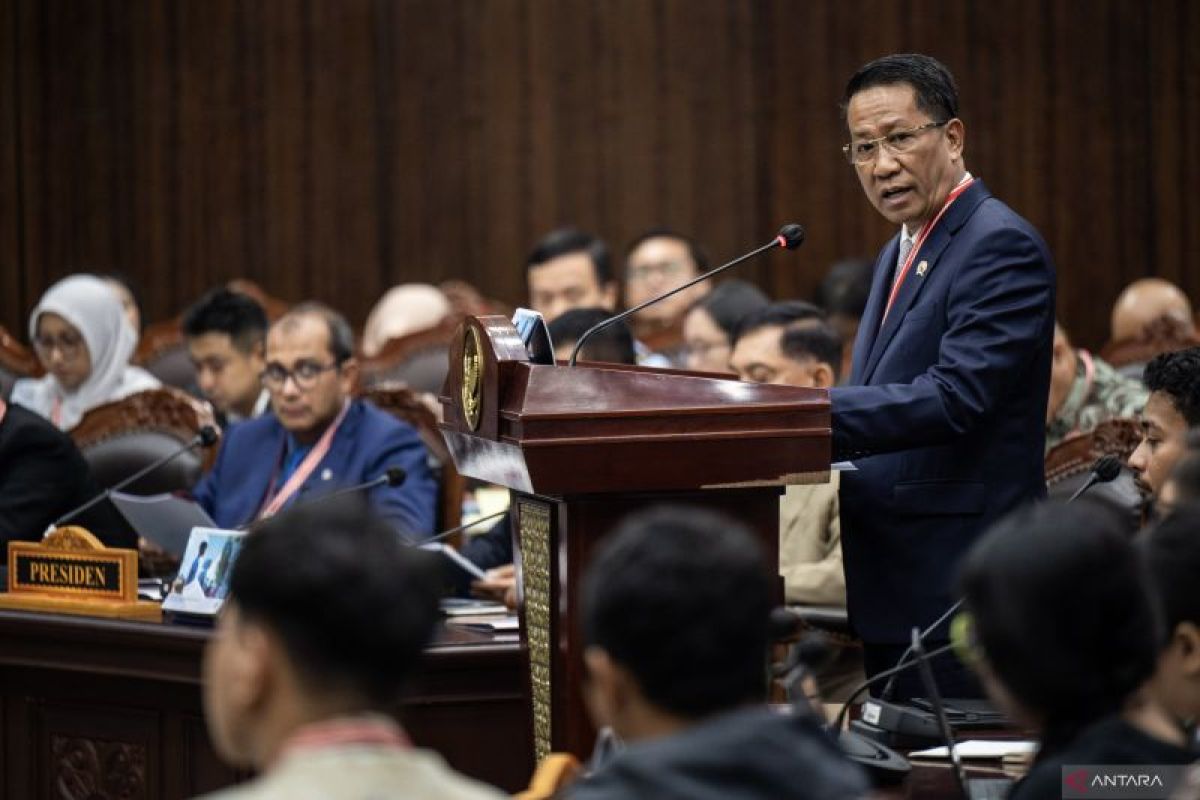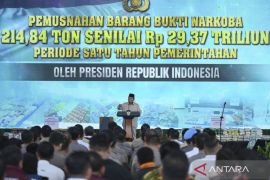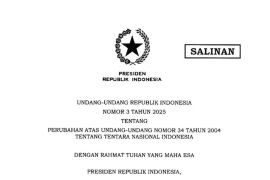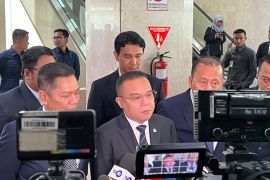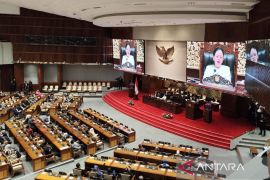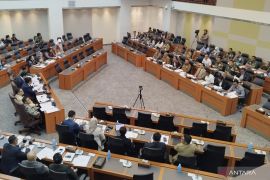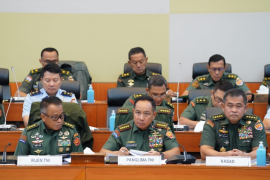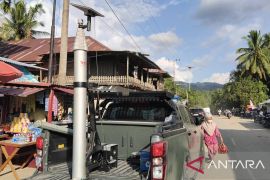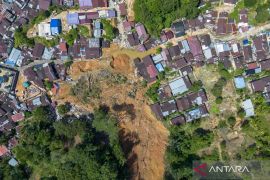He delivered the statement during a plenary session at the Constitutional Court (MK) in Jakarta, as part of the government’s response to five formal judicial reviews filed against Law No. 3 of 2025, which amends Law No. 34 of 2004 on the TNI.
"The formation of Law No. 3 of 2025 was carried out in accordance with Law No. 12 of 2011 on the Formation of Laws and Regulations (P3 Law) and Presidential Regulation No. 87 of 2014 on the implementation of the P3 Law," Agtas said.
He explained that before the House of Representatives (DPR) proposed the amendment bill, the government had begun gathering public input in 2023 through focus group discussions (FGDs) organized by the TNI Headquarters.
"The results of these FGDs formed the basis for preparing the Problem Inventory List (DIM) in 2024," Agtas said.
After receiving a formal letter from the DPR, the government began compiling the DIM under the coordination of the Coordinating Ministry for Political, Legal, and Security Affairs. Public hearings were also held with representatives from ministries, agencies, academia, and civil society.
The feedback was incorporated into the final DIM, which was then submitted to the DPR for deliberation. The bill passed through several discussion phases before being passed in a DPR plenary session.
“Based on this process, it is clear that the formation of Law No. 3 of 2025 included ample space for public participation,” Agtas asserted.
He argued that the process was not rushed, met transparency standards, and fulfilled the requirements for meaningful public involvement.
Addressing the substance of the lawsuits, Agtas claimed that the petitioners lacked legal standing, as they were not members of the military and did not suffer constitutional harm from the law’s enactment.
Therefore, the government asked the Constitutional Court to reject the petitions in full, or at least to declare them inadmissible.
The five petitions challenging the law’s constitutionality were filed by law students from the University of Indonesia, Padjadjaran University, and Gadjah Mada University, along with civil society groups and activists.
The petitioners have asked the court to annul the law, arguing that it violates the 1945 Constitution and is therefore legally invalid.
Law No. 3 of 2025 introduces key changes to the TNI’s structure, including expanded core duties, new provisions for placing military personnel in civilian institutions, and adjustments to the retirement age.
Related news: Indonesia's TNI Law revised: Retirement age, civil roles expanded
Related news: Parliament approves amended Military Bill into law
Translator: Fath, Azis Kurmala
Editor: Anton Santoso
Copyright © ANTARA 2025
